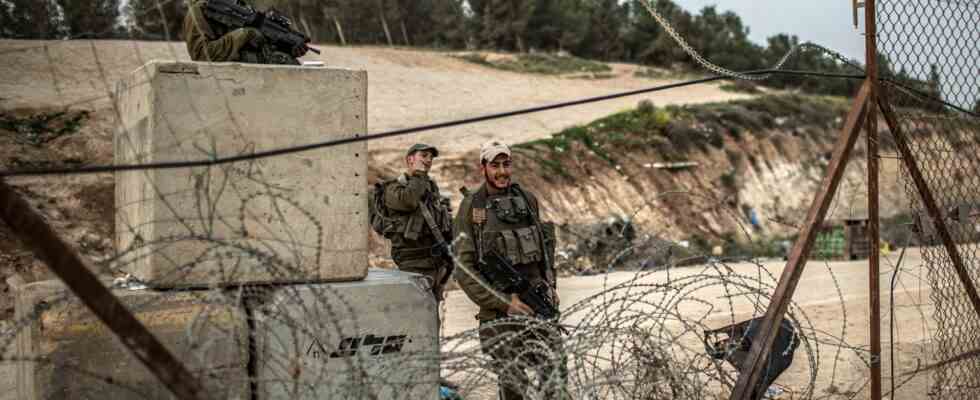Status: 08.04.2022 7:36 p.m
For years, thousands of people climbed the West Bank fence and entered Israel illegally. After an assassination attempt, the rather open fence becomes a political problem.
The Palestinian Tawfiq lives in Nablus in the center of the West Bank – from there he travels to Israel again and again, as he says: He has already done it four times with Israeli permission. He entered the country illegally twice.
Entering Israel illegally – i.e. without a permit – was easy until a few weeks ago. A cellphone video by Tawfiq shows a group of Palestinians walking through a hole in the Israeli separation barrier. The complex consists of walls and fences and runs along the border to, but also partly in, the occupied West Bank. Israel built them during the second intifada, citing protection against terrorist attacks as a reason.
But for years it was an open secret that the gaps in the fence could be easily passed. “It’s as easy as crossing a street,” Tawfiq said six months ago. “The Israeli government is well aware that many people enter Israel illegally every day.”
A Palestinian holds up his pass – on the other side of the fence an Israeli border guard shows the way.
Image: picture alliance/dpa
“Cannot always be present everywhere”
It is also known that the Bnei Brak assassin entered Israel through a hole in the border fence at the end of March and subsequently killed five people. The rather open fence is now becoming a problem for the Israeli army and the government. After the assassination, Matanyahu Englmann, a state warden, inspected the barrier.
“There is a clear failure here,” he said. “More than eight billion shekels (equivalent to 2.2 billion euros) have been invested. Nevertheless, we see holes in the fence. Openings through which thousands of Palestinians walk.” Englmann said that one was “witnessing the continued failure” of a project designed to protect Israel’s citizens.
The Israeli army is rather reluctant to answer press inquiries on the subject. The fence is there to protect Israel from terrorists. But the problems are now so public that Defense Minister Benny Gantz became clear on KAN. “The protective wall is badly damaged and should be restored urgently. We are doing this according to military priority and according to the resources that are available to us,” he says. “We are positioned on all fronts. But you can’t always be present at the same time and everywhere with full force.”
Patch – or better not?
Benny Gantz hints at something most experts agree on: there is no such thing as a completely sealed barrier. And maybe they shouldn’t exist. Because of course the Israeli army knew what had happened at the perforated border fence in recent years.
“Hardly any terror has gotten through the holes in recent years. And that’s why the army and the defense ministry ignore them,” says Israeli journalist Ohad Chemo, who works at TV Channel 12.
Since the Bnei Brak attack, most of the holes in the fences have been guarded by soldiers. Israel now faces a not-so-easy decision: should the holes be permanently patched? Because a hole in the fence is seen by some as a contribution to Israel’s security. Because almost all Palestinians come in peace. They work in Israel and bring money and a little more wealth to the West Bank. Or they just want to go to the beach. Things that help ease the situation.
On the other hand, the holes can also be used by terrorists. The alleged Tel Aviv bomber – who killed two people and was shot dead by Israeli security forces in the morning – hails from Jenin in the West Bank. It is not yet known whether he, like the Bnei Brak assassin, managed to get to Israel through a gap in the fence. After the attack, however, the pressure on Israel’s government to permanently close the gaps in the fence is likely to increase.
After a terrorist attack: the many holes in Israel’s barrier
Benjamin Hammer, ARD Tel Aviv, April 8, 2022 5:45 p.m

